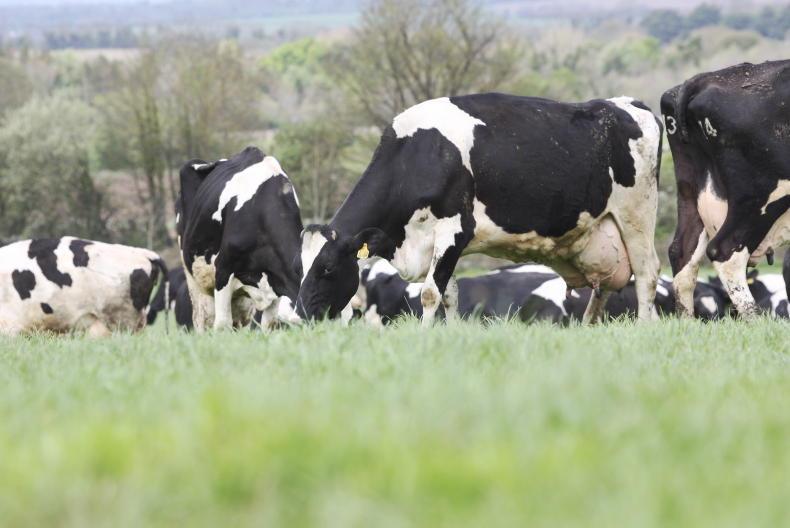Up until last week grazing conditions were excellent for the time of the year. This meant graze-outs on heavy covers were very good. However, the rain that fell last Friday and over the weekend has made grazing conditions that little bit more challenging, with some farmers opting to house their cows by night. However, weather reports for the next seven to 10 days seem to show very little rain, which will be a delight for those farmers that still have grass and are sticking with their autumn rotation planner.
The two main goals as a farmer at this of the year are 1) to keep grass in the cows diet and 2) to ensure you close the farm up so you will have grass for the spring.
Remaining on track
Those farming on dry land should have 70% of the farm closed by the end of the week and 80% for farmers on heavier soils. The last 20-30% of paddocks left to graze should be awkward paddocks, those further from the yard, paddocks with high clover content and paddocks that have old grass on them that wouldn’t grow much over the winter.
At this stage of the year, it’s essential to conduct weekly farm walks to closely monitor the average farm cover (AFC). The AFC provides a clear indication of whether grazing can continue without dipping below the desired closing cover.
Allowing the AFC to fall below the target now can significantly impact grass availability for next spring. For those aiming for a closing cover of 700kg DM/ha by 1 December, the AFC should be at least 500kg DM/ha by 6 November. Farms with an AFC at or below 500kg DM/ha, should wrap up grazing to secure adequate regrowth for the spring season.
Swardwatch
David Fogarty and Katie O’Toole, Cantwell, Co Kilkenny
We have more grass now than we had a few weeks back. Ground conditions are still good, so we hope to keep grass in the cows’ diet until mid-November. Last year’s maize silage is being fed during milking to help extend the final rotation. Recovery on the first 30% of paddocks grazed is impressive, partly because covers were never able to build up too high. We grazed a few lighter covers in the last week, to get them set up for early grazings next year. We body condition-scored last Friday. We will start to dry off cows and heifers later this week, depending on calving date, BCS and performance.
Stocking rate (cow/ha): 2.33
Growth rate (kg/day): 25
Average farm cover (kg/cow): 302
Yield (l/cow): 13
Fat%: 5.82
Protein%: 4.68
Milk solids (kg/cow): 1.41
Concentrates: 3
Noel O’Toole, Killimor, Co Galway
We’ve grazed 75% of the farm so far and plan to continue to graze until 15 November. Ground conditions remain solid, a marked improvement over this time last year.
We’re keeping our demand low, as half of the diet is being made up of silage and meal.
The condition of the cows is very good, but they have been fed well all year.
Following a 10-week breeding period, we have an 8% empty rate in the cows. Some heifers will be dried off within the next week to 10 days, with the entire herd set to be fully dry by 18 December.
Stocking rate (cow/ha): 4.34
Growth rate (kg/day): 23
Average farm cover (kg/cow): 163
Yield (l/cow): 13
Fat%: 6.13
Protein% 4.42
Milk solids (kg/cow): 1.41
Concentrates: 4
Tony Byron, Teagasc Curtins, Co Cork
Ground conditions remain excellent, with 50% of the farm already grazed. We plan to complete grazing on the remaining 50% over the next 20 days. The cows are currently on 12-hour allocations, grazing covers of 1,250kg DM/ha, and will stay out both day and night for the next 10 days, before being housed at night. Clean-outs have been consistently good for this time of year. Recent body condition scoring averaged at 3.0.
We intend to begin drying off the heifers and thinner cows within the next 10 days. The in-calf heifers returned from the contract-rearer this week and will be housed on bale silage.
Stocking rate (cow/ha): 2.3
Growth rate (kg/day): 17
Average farm cover (kg/cow): 332
Yield (l/cow): 13.7
Fat%: 5.87
Protein%: 4.64
Milk solids (kg/cow): 1.48
Concentrates: 6
